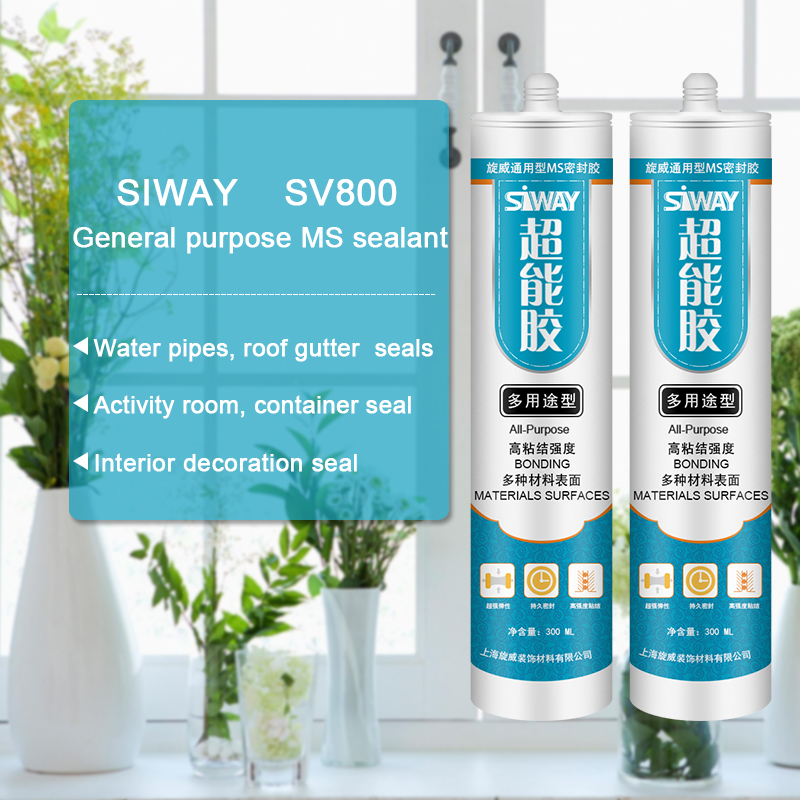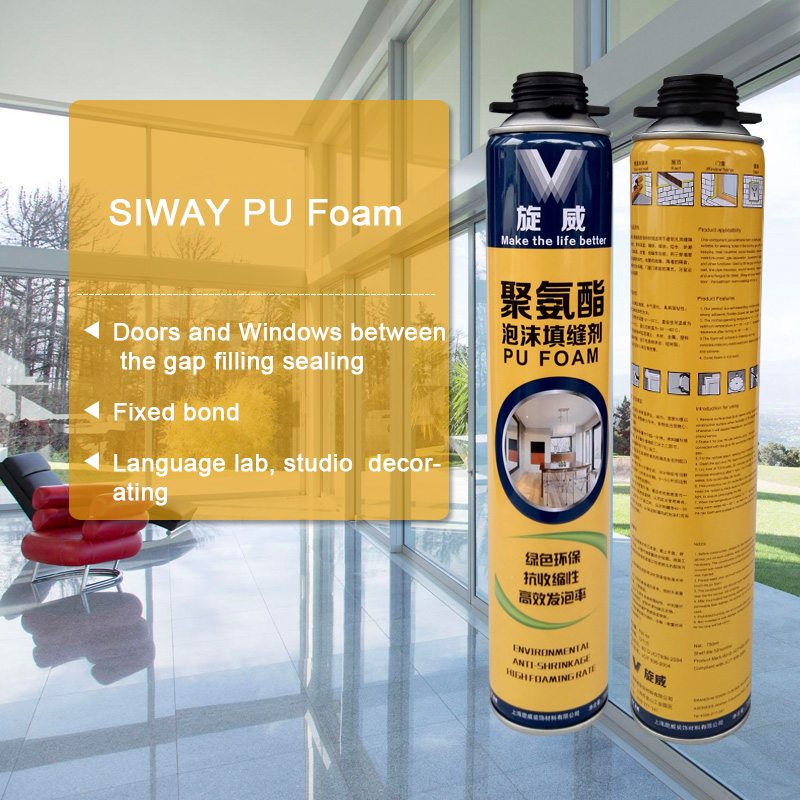Factory Cheap Hot SV-618 Acetic Glass Sealant for United Arab emirates Factory
Short Description:
Description It is one-component acetoxy silicone sealant with fungicide to form a durable and flexible rubber seal resistant to water, mildew and mold. Where to use SV-618 is an excellent candidate to consider the reliable prevention of mildew formation around fixtures in high humidity and temperature areas such as bath and kitchen rooms, swimming pool, facilities and lavatories. It also has good adhesion to most common building materials e.g. glass, tiles, ceramics and fiber glass, painte...
The customer satisfaction is our primary target. We uphold a consistent level of professionalism, quality, credibility and service for
Factory Cheap Hot SV-618 Acetic Glass Sealant for United Arab emirates Factory, We warmly welcome your participation based on mutual benefits in the near future.
Description
It is one-component acetoxy silicone sealant with fungicide to form a durable and flexible rubber seal resistant to water, mildew and mold.
Where to use
SV-618 is an excellent candidate to consider the reliable prevention of mildew formation around fixtures in high humidity and temperature areas such as bath and kitchen rooms, swimming pool, facilities and lavatories. It also has good adhesion to most common building materials e.g. glass, tiles, ceramics and fiber glass, painted wood.
Key Features
1. 100% silicone
2. Easy to apply
3. Highly efficient and safe bactericide
4. Low VOC
5. Proven Performer
Technical data sheet
Technical data sheet for reference,
| Test standard | 1000 | |
| Appearance | ISO 11600 | Have no grain, no agglomerations |
| Extrudability,g/ml | ISO 8394 | 450 |
| Tack Free Time,min | ASTM C 679 | 20 |
| Density,g/cm3 | ISO 1183 | 1.0 |
| Slump,mm | ISO 7390 | 0 |
| Heat weight loss,% | ISO 10563 | 7 |
| Ultimate Tensile Strength,MPa | ISO 8339 | 0.4 |
| Ultimate Elongation,% | ISO 8339 | 150 |
| Ultimate Shear Strength, MPa | ISO 4587 | N/A |
Certification
JC/T885-2001 20LM; and GB/T1741-2007 Mildew Proofing Grade 0
Color
clear, black, silver gray, white
Package
300ml in cartridge * 24 per box
Shelf life
12 months
Note
If you want the TDS or MSDS or other details, please contact with our sales person.
This video segment will show you how to make a simple mold using TAP Premium Liquid Latex Rubber. Molding and casting materials are available at tapplastics.com. To order TAP Premium Liquid Latex Rubber, go to https://www.tapplastics.com/product/mold_making_materials/mold_making_supplies/tap_premium_liquid_latex_rubber/62
From https://www.kevincaron.com – Artist Kevin Caron uses a new top-loading sprayer to apply linseed oil to a commissioned railroad spike sculpture ….
The sprayer Caron is using to apply the linseed oil to a new sculpture is a high-volume, low-pressure spray gun. Instead of having the big metal can on the bottom where the liquid is siphoned up into the gun, this applicator has its container on the top so the liquid feeds down. That lets you get everything out of the cannister instead of having that last little stubborn dribble left.
At the bottom of the spray gun handle is a connection for the air compressor. A nearby knob controls the pressure, while a knob at the back of the upper part of the gun controls how far the trigger moves and therefore how much material you release.
There’s another knob he’s not sure about. He thinks it’s what controls the air coming out of the nozzle to create a fan that can be aimed different ways for varying the coverage for different applications. Because he’s just trying to coat railroad spikes, he wants more of a stream than a wide spray. He’ll also restrict the amount of oil released to avoid runs.
Caron puts on his respirator and safety glasses safety equipment and plays with the mystery control. It does control the fan shape – flat for spraying up and down, or sideways for side to side to cover more area.
Next, Caron begins spraying the linseed oil on the sculpture, which takes about 15 minutes. “This little gun works pretty good,” he says, about the Harbor Freight tool.
Now it’s time to heat the oil to help it seal and cure onto the metal. He intended to use a rosebud fitting on his oxygen-acetylene unit, but he’s out of acetylene, so he got out a weed burner, which is used to clear irrigation ditches.
Caron lights the weed burner with his propane torch, then secures the torch and sets it away from the area where he is burning. He begins applying the heat to the sculpture, saying, “You don’t want too much of a flame.”
Although he has the flame turned down, the burner’s large head can heat a lot more area at the same time. He can heat two spikes at once, making the weed burner a better choice for this job than the rosebud tip, as long as you don’t turn up the heat too high.
This is going to take a while, so while Caron is working, you can head out to his Web site at https://www.kevincaron.com and check out some of his sculptures. Watch this sculpture develop at https://www.kevincaron.com/art_detail/banked_bramble.html




